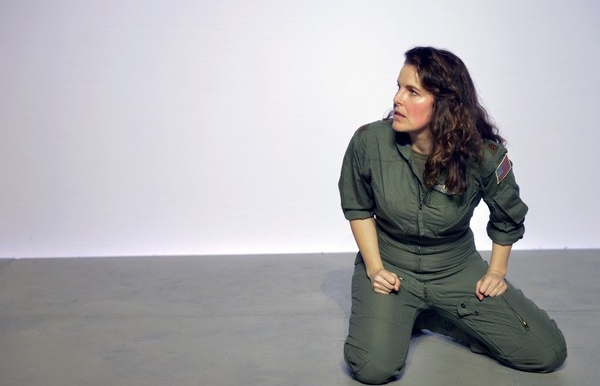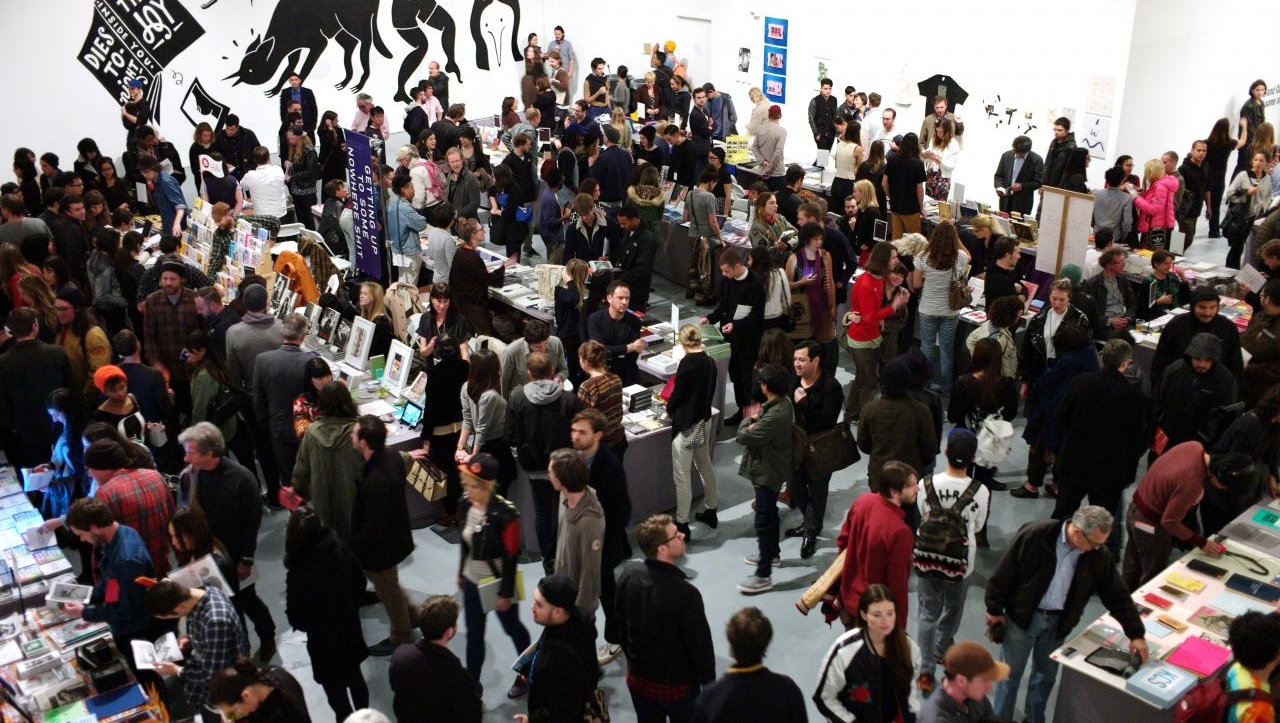The character Cole plays isn’t given a name in the play; instead she speaks for a select group of pilots who are defined by their work and the camaderie they share. “The character’s a woman but it isn’t a feminist piece,” notes Cole. “Fighter pilots don’t think of themselves as men or women, they’re pilots first. The way she describes flying, it sounds like a very precious, almost religious experience when she’s in ‘the blue’. It’s their kind of god, in a way.”
Grounded won the 2012 Smith Prize for works about American politics – it tells the story of what happens to a pilot’s psychology when she is literally grounded: as US military regulations mean pregnant women cannot fly fighter jets, the heroine is relegated to running drones. Despite her strength, not being in the air, not enjoying the respect of her comrades, not being ‘in the blue zone’, means slowly the heroine’s sense of self starts to erode. “Grounded is a play about identity,” notes Cole. “She loves her country and she loves flying; she believes she’s doing the right thing, serving her country. The play is about her extreme working conditions – she’s running drones from an air-conditioned trailer somewhere outside Las Vegas and then she has to come home and be a wife and mother. She can’t talk about what she’s being doing for the last 12 hours, can’t talk about her work. When she was in the air, the pilots could debrief afterwards, have a beer together and play pool, they were together afterwards even if they didn’t actually talk about their day. Now she’s doing a 12 hour shift in front of a computer screen and there’s no decompression at the end of it. She goes home to care for her family. How do you balance those two things? It’s a human story of one person put under immense pressure. The playwright looks at the worst case scenario of what happens to someone when they have to be two different people in two different places and they’re alone.”
Brant was inspired to write Grounded after reading an account of post-traumatic stress disorder suffered by a man who worked as a sensor operator, someone who controls the camera in a drone flight. Technological advances mean drone operators can zoom in with a camera and inspect a scene after a bombing raid, so, although they themselves are safely half a world away from harm, they can now see the consequences of bombing a target in intense close-up, thus paradoxically experiencing a more intimate sense of killing than when they were running flying missions. “When he realised how many lives he’d taken the bottom of his soul dropped out,” explains Cole. “It’s a different kind of warfare; it’s a very high stress life. The playwright is looking at the morals involved in inflicting injury, on the cost to people charged with carrying out killing; we get to see behind a curtain to another world only a few people live in, and really get to know about the lives of people who press the triggers. It’s such an extreme position to be in.”
Cole says the text of Grounded is a departure from the usual when it comes to play scripts. “It’s like a poem, it runs line-on-line like a stream of consciousness, it has references to pop culture, to the ancient Greeks, there are biblical references, key words, codes, link-ups – it’s an astonishing piece of writing.” She says she especially loves the character’s chutzpah: “She runs the gamut; she can be funny, shocking, and horny, she’s doing her best at sucking up life. She’s a fighter pilot, a top gun, she’s up there, she’s fiercely intelligent, and she’s the cream of the crop. Americans take their spot in the world and that can sometimes be overwhelming for Australians. It’s glorious to really inhabit someone with that confidence, it may be a cliché but it’s fun.”
Cole actually played this part in a season last year at Red Stitch’s home; the actors theatre is now briefly remounting Grounded for a second short season at the new Alex Theatre (formerly the George cinema), in St Kilda. What is it like for her to reprise this role? How does it feel different? “We go deeper; when you come back to something you see different things. It’s not just about remembering lines; you see things in a different light. We are looking at everything all over again.” Unsurprisingly, Cole experiences a minor, secondary sort of stress herself after performing such an intense work. “I don’t know what to do with myself after the play; I go and sit in my car by myself for an hour afterwards.”
BY LIZA DEZFOULI

